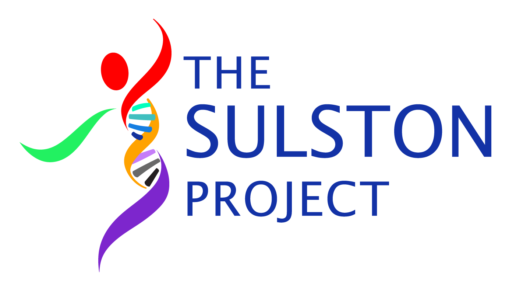Sulston Project: Making the Knowledge Commons for Interpreting Cancer Genomics Variants More Effective
Program Areas – Science and Technology Policy
Sulston Project: Making the Knowledge Commons for Interpreting Cancer Genomics Variants More Effective

The Sulston Project is about building the knowledge commons for interpreting cancer genomic variants, the important unfinished work. We’re looking at various aspects. One aspect is whether, to what degree, and how genetic testing opened up after the Mayo and Myriad decisions, and how labs decide what to test for, what data they share, and how to build the information resources we will all draw upon in the future. Our goal is to identify and rank barriers and potential solutions to improve the interpretation of variants associated with the inherited risk of cancer.
By the time John Sulston scribbled the first draft of the Bermuda Principles on a whiteboard in February 1996, several genes associated with inherited risk of cancer, including BRCA1 and BRCA2, had been identified. Concerns that proprietary rights and secrecy would cast a shadow over genomic science aligned with requirements for daily sharing of DNA sequence data from high-throughput sequencing centers. This open science norm is now spilling over to other fields, including translational and clinical genomics.
Two decades after Bermuda, genomic variants associated with inherited cancer risk remain a battleground where open science and proprietary data practices vie for dominance. Our previous work (McGuire R01 GH008919-S1) explores the ways in which these battles are playing out in understanding cancer-gene variants. This proposal builds on that work by exploring the creation of a knowledge commons for all inherited cancer variants (“cancer genomic variant commons”). We focus on inherited cancer risk in this proposal because efforts to create a cancer genomic variant commons are already underway, but incomplete. Yet we are confident that our results will inform the creation of genomic commons for other conditions. The ultimate success of any knowledge commons will hinge on the development of policies to address disincentives for sharing, as well as implementation challenges.
The overall goal of this project is to produce a foundation of empirical knowledge, on which we can build policy options to address the challenges that confront the nascent knowledge commons concerning variants associated with inherited cancer risk. We will map those options to institutions and those with authority to act on them.
Aim 1: Describe data sharing structures and practices for inherited cancer-risk variants.
We will employ careful historical methods, informational interviews, network analysis of publications and patents, citations to publications and patents, and other methods to produce a case study of the nascent commons that exists in cancer variant genomics, while also noting alternative frameworks on the continuum between fully public resources and proprietary data.
Aim 2: Identify the challenges of developing a sustainable commons for inherited cancer-risk variants.
Using established design principles (e.g., the Institutional Analysis and Development (IAD) framework for successful commons) and principles that have emerged from our previous work, we will identify barriers and gaps in the data sharing structures and practices described in Aim 1. We will explore these and other relevant challenges through in-depth interviews with: patients, families, advocacy organizations; testing laboratories; databases, data resources; curators, annotators, variant interpreters; and genetic counselors, clinicians and researchers (professional users of the data).
Aim 3: Formulate policy options to address the most important challenges identified in Aim 2, and map policy options to institutions and actors who can act on them.
We will employ a modified policy Delphi process with our advisory committee members to rank the challenges identified in Aim 2 according to importance and tractability and to explore policy options to address those ranked most important and tractable. We will then map the options to institutions and actors who can act on them.
Aim 4: Translate findings and options from Aims 1-3 by engaging with policy-makers and other actors.
We will host a final meeting of our advisory committee and reach out to those institutions and actors who can implement policy options as identified in Aim 3. Target audiences are likely to include agency officials (e.g., NIH, FDA, CDC, CMS), members and staff in Congress, nongovernment organizations, and health professional and trade organizations. We will generate materials tailored to the specific needs of different audiences.
This project is urgent and significant because the clinical and scientific stakes are very high: people facing agonizing decisions about management of inherited cancer risk must have access to reliable genomic information. Additional impact will come from using these results to help design future genomic commons. This project is innovative in its use of mixed methods, incorporating a Delphi framework into a policy-committee structure, and its explicit attention to policy translation and engagement. It will be feasible, as demonstrated by the productivity of this team in prior work, our experience with the methods and knowledge about the existing elements of a commons, and the combination of theory and empirical social science we will employ.
Meet the Project Team
Principal Investigators
Additional Team Members


